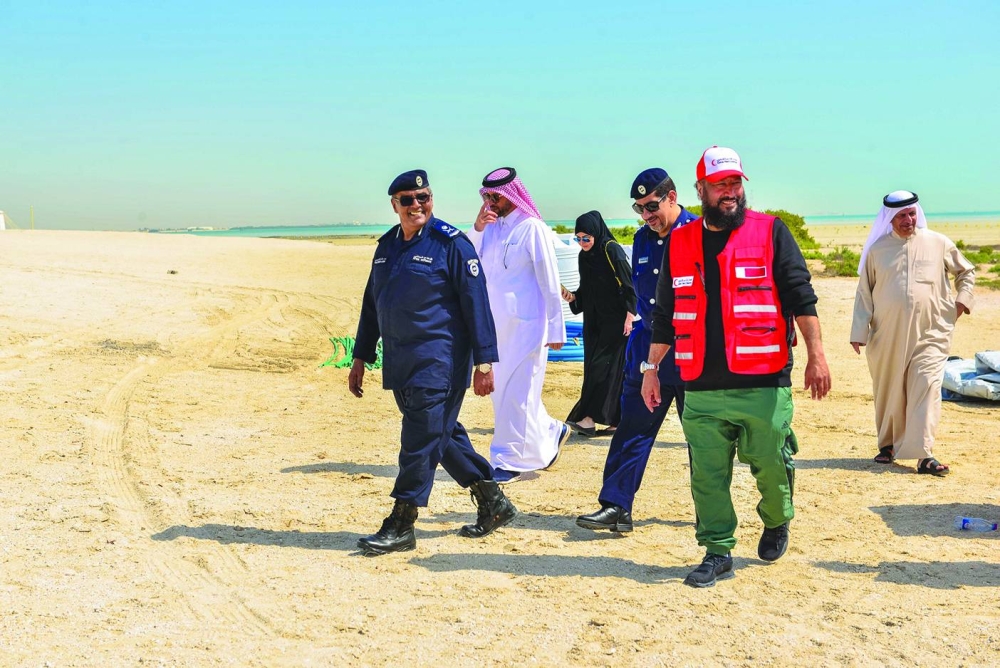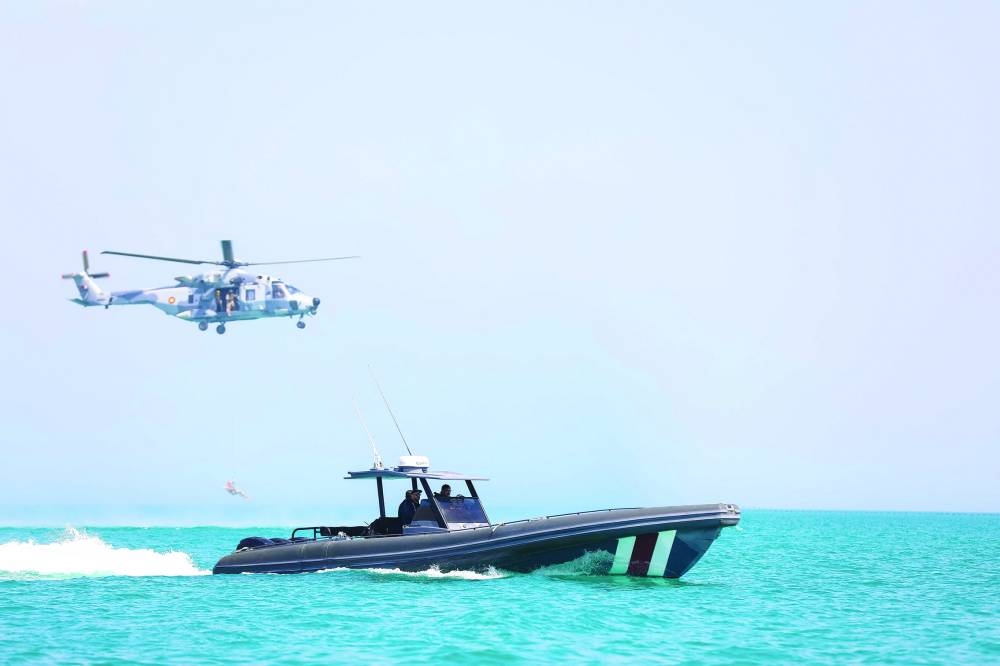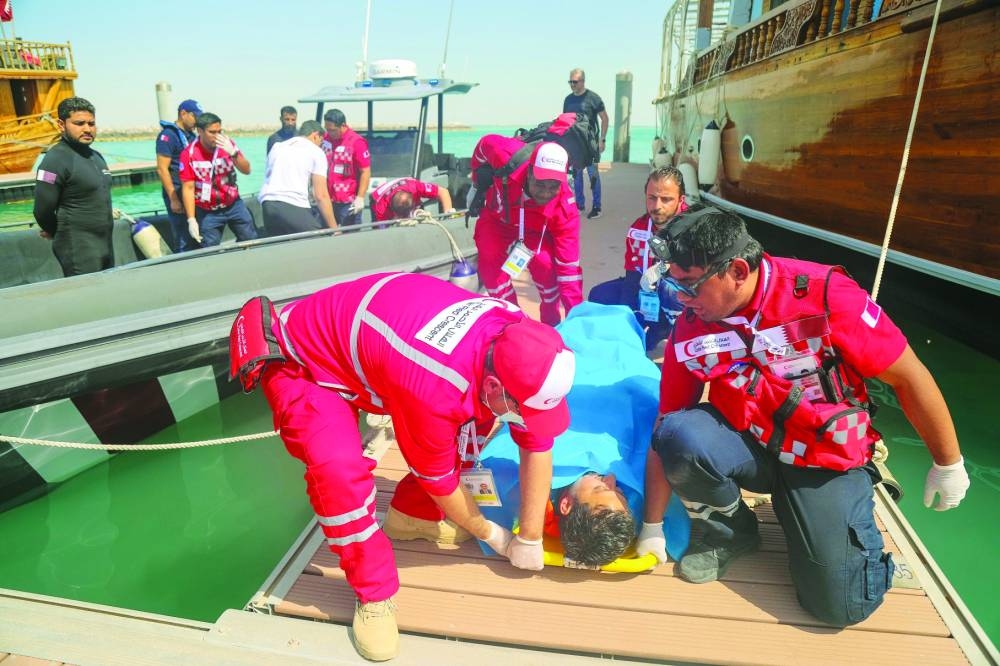Day 3 of the ninth Disaster Management Camp (DMC-9), organised by Qatar Red Crescent Society (QRCS) under the patronage of the Ministry of Public Health (MoPH), saw a large-scale disaster scenario of a refugee ship adrift off the coast. All the trainees and personnel of the authorities concerned engaged in the rescue operation.
Designed by the DMC-9 Scenario Committee, the planned scenario began with a refugee boat reported at sea, and many government bodies responded immediately. Coast and Borders Security undertook the marine rescue operation, Traffic Police accompanied the rescuers, while Al-Fazaa were deployed to prevent crowding. A Qatar Amiri Air Force helicopter extracted the victims and transported them to the drop-off Site A (Al Khor dock), where QRCS first responders took two critical cases to the field hospital for medical care.
The other refugees were taken by bus to the shelter camp, where QRCS personnel provided healthcare, shelter, food, psychological support, and restoring family links (RFL) services.
Finally, the helicopter loaded humanitarian aid from Site A and offloaded it at Site B, just for QRCS personnel to deliver it to the camp.
During the morning meeting, the Blue Team was assigned to attend a theoretical and practical lecture on field assessment and coordination in emergencies, delivered by Raad al-Hadid from the International Federation of Red Cross and Red Crescent Societies (IFRC) and Abdullah Othman Abdullah, member of QRCS’s Disaster Information Management Centre (DIMC).
DMC-9 was visited by senior executives, who took a tour around the camp and praised the administrative and training work done. They included Major-General Hamad bin Othman al-Duhaimi, director-general of Civil Defence and a member of the Civil Defence Council; Colonel Ahmed Abdullah al-Abdullah, assistant
director for Support and Secretary of the Civil Defence Council; Dr Ibrahim bin Saleh al-Naimi, undersecretary of the Ministry of Education and Higher Education; Ali bin Hassan al-Hammadi, secretary-general of QRCS; Faisal Mohamed al-Emadi, CEO of QRCS; and Abdullah Faraj Nasrallah, assistant director of
Customer Services at Kahramaa.
On Wednesday, the evening training programme involved some lectures, including one on climate change.
There was also a simulated fire scenario at a refugee camp to test the trainees’ ability to respond and rescue the victims, while ensuring their own safety. The drill was supported by Civil Defence personnel and trucks, Al-Fazaa and QRCS’s ambulance service.


Glimpses from the ninth Disaster Management Camp.

